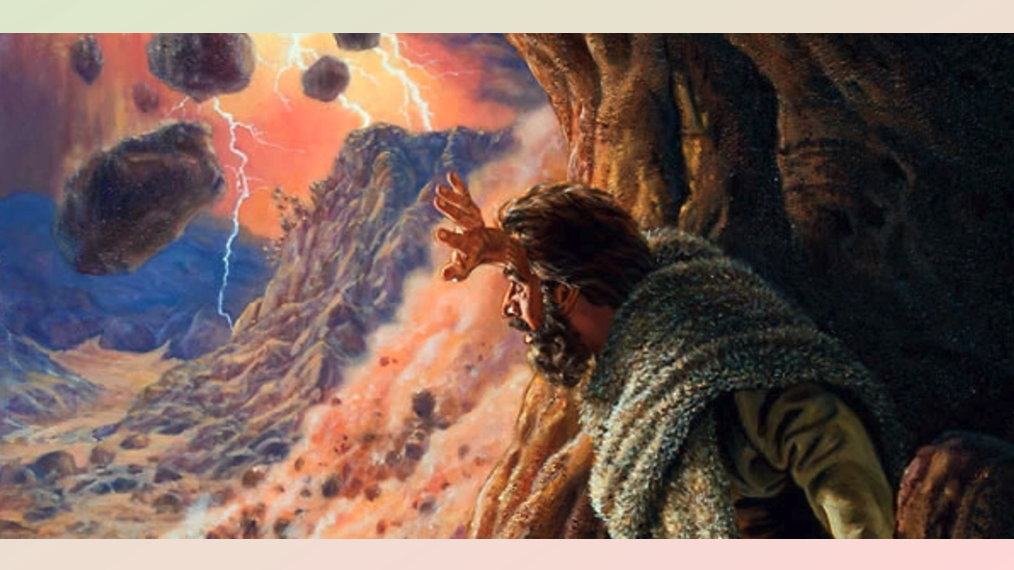Elijah's Encounter: A Whisper of the Divine
June 14, 2024 - Friday of the Tenth Week in Ordinary Time
1 Kings 19:9a, 11-16
Today, we witness a revelation of God on Mount Sinai/Horeb experienced by Elijah. In some ways, it resembles the revelation of God experienced by Moses and Israel centuries ago. When Israel stood at the foot of Mount Sinai after their escape from Egypt, they witnessed "a blazing fire and darkness and gloom and a tempest and the sound of a trumpet and a voice whose words made the hearers beg that no further messages be spoken to them" (Hebrews 12:18-19; see Exodus 19:16-20). However, there is a significant difference. In Exodus, God descended in fire and spoke in thunder. Elijah experienced God through "a still, small voice" (1 Kings 19:12).
All English translations render the Hebrew word "ruah" as wind, but many of you know that "ruah" also means "spirit." This is the same word that appears at the beginning of creation: the Spirit of God was hovering over the chaotic waters (see Genesis 1:2). Here, the Spirit goes before the LORD, splitting the mountains and crushing the rocks. Gregory of Sinai saw here the revelation of the Holy Spirit—a great and powerful wind—"who rends the mountains of sinful passions and shatters the rocks of hardened hearts."
The Hebrew word translated as "voice, whisper, or sound" occurs three times in the Old Testament, and in the other two instances, it is rendered as "silence" (see Job 4:16; Psalm 107:29). I particularly like the passage from Job that speaks about a revelation of the Spirit: "It stood still, but I could not discern its appearance. A form was before my eyes; there was silence, then I heard a voice" (Job 4:16). Perhaps, something like this takes place here. A unique silence enveloped Elijah, and then he could hear the voice of the LORD.
From a Trinitarian perspective, this passage reveals the Spirit coming in the power of the Lord, and the Son of God—the voice of the Lord—speaking to Elijah. The question is: "What are you doing here, Elijah?" or "Why are you here, Elijah?" The Lord often asks questions to which He knows the answers better than us. When Adam and Eve hid themselves from the Lord, He asked the man: "Where are you?" (Genesis 3:9). For those readers who are not familiar with the entire story, Elijah was there because he was running for his life. After Elijah killed 450 prophets of Baal, Queen Jezebel vowed to kill him (see 1 Kings 19:1-8).
The Lord not only knew why Elijah was on Mount Sinai, but He also knew what Elijah did not know, namely that the prophet was not alone in his devotion to God, as he claimed. There were seven thousand other worshippers of God who had not knelt before Baal. Moreover, the Lord had a plan ready for him (see 1 Kings 19:15-18).
At that moment, Elijah heard the voice of the Lord. Centuries later, he would see the One who spoke to him on another mountain, which we call the Mountain of Transfiguration. On that mountain, we not only see the glory of the Son but are also introduced to the mystery of the Holy Trinity that the revelation of God to Elijah foreshadows.




